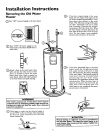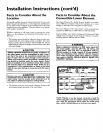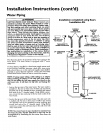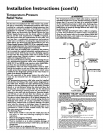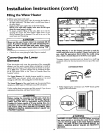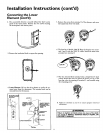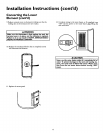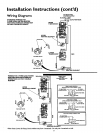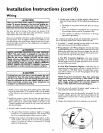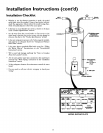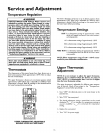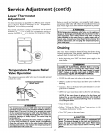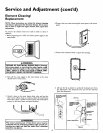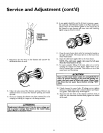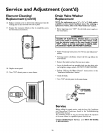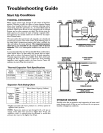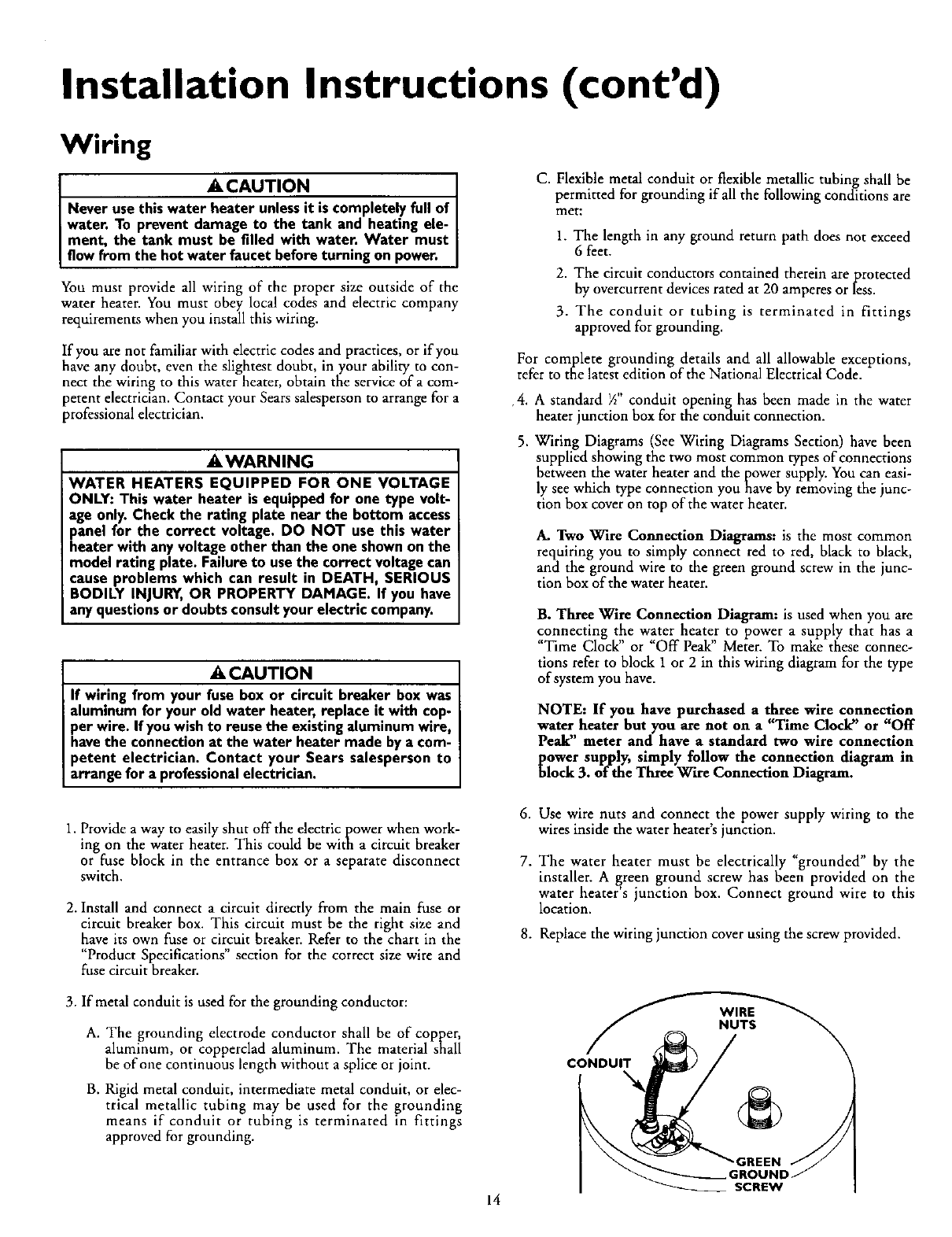
Installation Instructions (cont'd)
Wiring
_CAUTION
Never usethis water heater unlessit iscompletely full of
water. To prevent damage to the tank and heating ele-
ment, the tank must be filled with water. Water must
flow from the hot water faucet before turn ng on power.
You must provide all wiring of the proper size outside of the
water heater. You must obey local codes and electric company
requirements when you install this wiring.
If you are not familiar with electric codes and practices, or if you
have any doubt, even the slightest doubt, in your ability to con-
nect the wiring to this water heater, obtain the service of a com-
petent electrician. Contact your Sears salesperson to arrange for a
professional electrician.
AWARNING
WATER HEATERS EQUIPPED FOR ONE VOLTAGE
ONLY: This water heater is equipped for one type volt-
age only. Check the rating plate near the bottom access
panel for the correct voltage. DO NOT use this water
heater with any voltageother than the one shownon the
model rating plate. Failureto usethe correct voltagecan
cause problems which can result in DEATH, SERIOUS
BODILY INJURY,OR PROPERTY DAMAGE. If you have
any questionsor doubtsconsultyour electric company.
• ,CAUTION
If wiring from your fuse box or circuit breaker box was
aluminum for your old water heater, replace it with cop-
per wire. Ifyou wishto reusethe existingaluminum wire,
havethe connectionat the water heater made bya com-
petent electrician. Contact your Sears salesperson to
arrangefor a professionalelectrician.
C. Flexible metal conduit or flexible metallic tubing shall be
permitted for grounding if all the following conditions are
met:
1. The length in any ground return path does not exceed
6 feet.
2. The circuit conductors contained therein are protected
by overcurrent devices rated at 20 amperes or less.
3. The conduit or tubing is terminated in fittings
approved for grounding.
For complete grounding details and all allowable exceptions,
refer to the latest edition of the National Electrical Code.
,4. A standard _" conduit opening has been made in the water
heater junction box for the conduit connection.
5. Wiring Diagrams (See Wiring Diagrams Section) have been
supplied showing the two most common types of connections
between the water heater and the power supply. You can easi-
ly see which type connection you have by removing the junc-
tion box cover on top of the water heater.
A. Two Wire Connection Diagrams: is the most common
requiring you to simply connect red to red, black to black,
and the ground wire to the green ground screw in the junc-
tion box of the water heater.
B. Three Ware Connection Diagram: is used when you are
connecting the water heater to power a supply that has a
"Time Clock" or "Off Peak" Meter. To make these connec-
tions refer to block 1 or 2 in this wiring diagram for the type
of system you have.
NOTE: If you have purchased a three wire connection
,heater but you are not on a "Time Clock" or "Off
_a_r, meter and have a standard two wire connection
_ower supply, simply follow the connection diagram in
lock 3. of the Three Wire Connection Diagram.
1. Provide a way to easily shut off the electric power when work-
ing on the water heater. This could be with a circuit breaker
or fuse block in the entrance box or a separate disconnect
switch.
2. Install and connect a circuit directly from the main fuse or
circuit breaker box. This circuit must be the right size and
have its own fuse or circuit breaker. Refer to the chart in the
"Product Specifications" section for the correct size wire and
fuse circuit breaker.
6. Use wire nuts and connect the power supply wiring to the
wires inside the water heater's junction.
7. The water heater must be electrically "grounded" by the
installer. A green ground screw has been provided on the
water heater's junction box. Connect ground wire to this
location.
8. Replace the wiring junction cover using the screw provided.
3. If metal conduit is used for the grounding conductor:
A. The grounding electrode conductor shall be of copper,
aluminum, or copperclad aluminum. The material shall
be of one continuous length without a splice or joint.
B. Rigid metal conduit, intermediate metal conduit, or elec-
trical metallic tubing may be used for the grounding
means if conduit or tubing is terminated in fittings
approved for grounding.
CONDUIT
SCREW
14



